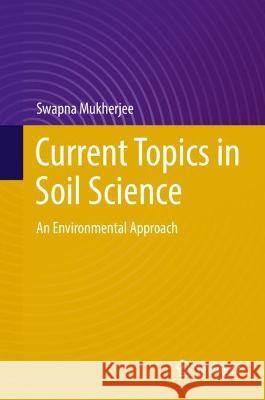Current Topics in Soil Science: An Environmental Approach » książka
Current Topics in Soil Science: An Environmental Approach
ISBN-13: 9783030926687 / Angielski / Twarda / 2022
Soil is an important but often neglected element of the climate system. It is the second largest carbon store, or ‘sink’, after the oceans. Despite being a fundamental resource that supports all kinds of life on Earth, concerns related to soil are often not included as an important environmental issue. Climate changes put soil under pressure. The increasing concentration of carbon dioxide in our atmosphere may cause the microbes in the soil to work faster to break down organic matter, potentially releasing even more carbon dioxide. The soil moisture content is being constantly affected by rising temperatures and changes in precipitation patterns and future projections show that this may continue. This book presents current environmental issues and their remedies for soil which are mainly based on soil degradation, soil pollution and the effect of climate change on the soil. Adding xenobiotic chemicals or other alterations in the natural soil environment for agricultural, industrial or urban purposes result in a decline in the soil quality due to improper use or poor management, which is a serious environmental problem. The book is divided into five parts - soil science, soil physics, soil chemistry, soil biology and soil environment. The first part “Soil Science” serves as the introduction to the book and discusses some common topics such as soil formation, mineralogy, taxonomy, quality and analytical techniques. The second part “Soil Physics” is mainly concerned with the physical properties and processes of soil and their association with effects on air, water and temperature. Soil Chemistry, the third part, discusses the chemical reactions and processes between inorganic and organic components. The fourth part “Soil Biology” explains the biological properties and processes of the soil, with special concern to microbial diversity and its effect on the ecology. Lastly, the fifth part “Soil Environment” discusses the current environmental problems such as climate change and soil pollution, including processes to mitigate these issues through carbon sequestration, nutrient management and land management.











